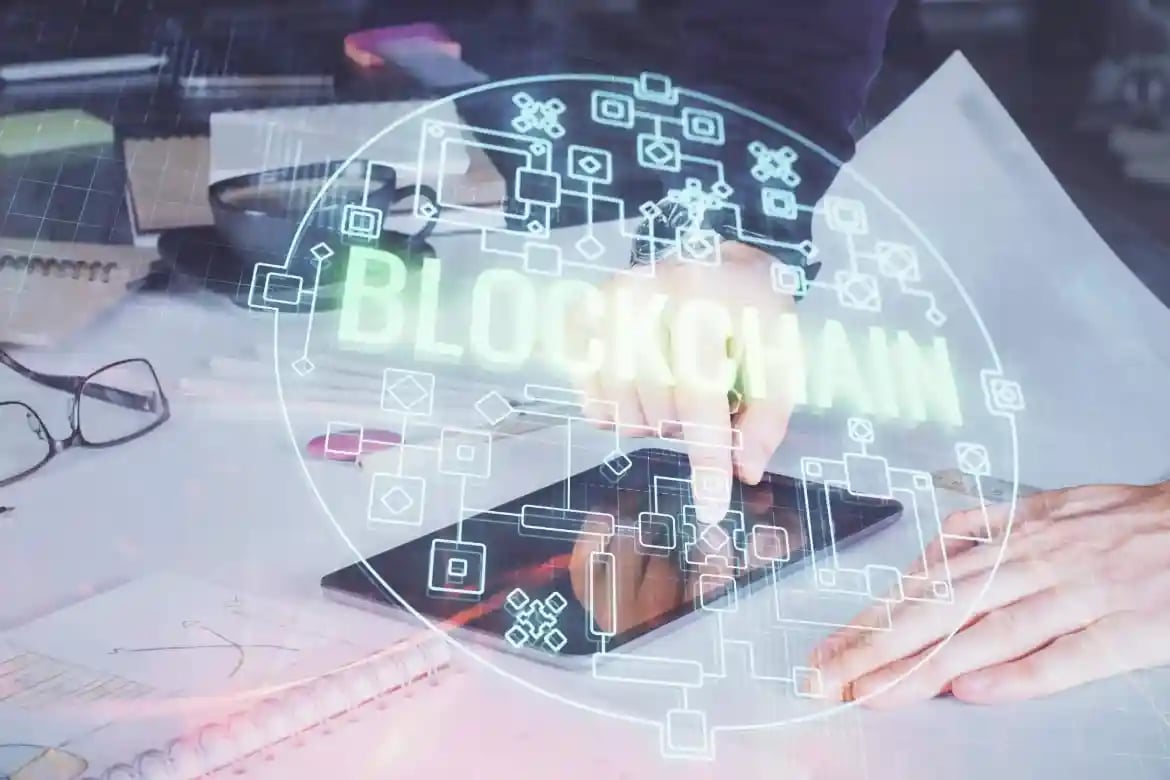Blockchain Technology: Enhancing Security in the Digital Age
Date: 20 July 2023

Today, as information is primarily stored in digital platforms and is able to travel easily throughout the world, protecting it has become more important than ever. This is what makes cybersecurity a top priority.
The weaknesses of conventional centralised systems have been revealed by the increase in hacking incidents, ransomware attacks and data breaches, and identity thefts. But in the digital era, the path-breaking new technology called blockchain is revolutionising how we approach security.
Blockchain, the underlying technology for cryptocurrencies like Bitcoin, has also proved to be an effective tool for bolstering security in a wide range of settings. This article explores the complexities of blockchain technology and how it may strengthen the online environment.
What is Blockchain Technology?
Blockchain technology, a distributed ledger system, enables the safe, open storage and movement of data. A blockchain can be thought of as a distributed ledger of financial transactions rather than a centralised database.
The nodes in a blockchain system collaborate to ensure the legitimacy of each transaction before it is added to the distributed database. Once a transaction is added to the blockchain, it can no longer be changed or removed. Because of this, storing and transmitting data using this method is extremely safe and dependable.
The technology's operation is where the word "blockchain" originates. The addition of blocks containing linked transactions updates the blockchain in a sequential, linear fashion. A digital signature (hash) is used to link one block in the chain to the one before it. When all network transactions are recorded, a continuous chain of blocks is created. This chain acts as a permanent and transparent record.
When compared to older, more vulnerable centralised systems, blockchain technology is seen as a safer alternative. The fact that it is not governed by a central authority is a major factor in this.
First and foremost, the blockchain can benefit the banking and FinTech industries. The widespread adoption of blockchain technology has the potential to completely alter the way money is transferred around the world.
Traditional methods frequently involve intermediaries, resulting in delays and additional costs. With blockchain and banking software development, financial institutions can streamline the process by eliminating intermediaries and allowing direct peer-to-peer transfers, reducing both time and expenses.
Impact of Blockchain Technology on Cybersecurity
Better Data Security
Data security may be improved using blockchain technology, which is one of its key advantages. Data is kept in a single location by traditional centralised databases, rendering them open to intrusions. With blockchain, each node of the distributed network retains a copy of the whole ledger.
An attacker would need to control the majority of nodes concurrently to change or compromise the data, making the system very impervious to unauthorised changes. Blockchain is particularly tempting for safeguarding sensitive information such as bank records, medical data, and personal identities since its decentralised method eliminates the chance of a single point of failure.
Self-Executing Code, or Smart Contracts
Smart contracts have revolutionised blockchain technology by expanding its capabilities beyond just data security. The terms and conditions of a "smart contract" are stored in a computer programme.
It is written to run automatically and is saved in the distributed ledger. Smart contracts eliminate the need for middlemen, boost efficiency while retaining security, and automatically carry out operations in response to predetermined triggers.
Applications for these contracts vary from simplifying financial transactions to aiding intricate supply chain management. Smart contracts improve security and confidence in digital transactions by automating contract enforcement and removing human error.
Permanent Audit Trails
Permanent and tamper-proof audit trails may be made thanks to blockchain's openness and immutability. A timestamp is appended to each transaction in the blockchain as soon as it is recorded. This makes any future changes to the transaction extremely challenging.
Blockchain is the perfect instrument for creating trust and accountability because of this feature, especially in sectors where auditable data is essential.
Blockchain Security Use Cases
Blockchain technology has several uses for boosting security in a variety of businesses. Blockchain, for instance, is revolutionising payment methods in the banking industry by enabling safe, open, and nearly immediate transactions. Blockchain technology is used by cryptocurrencies like Bitcoin and Ethereum to offer decentralised and secure digital transactions.
Another area where blockchain technology is advancing significantly is supply chain management. Companies can trace and verify the origin, validity, and movement of items along the supply chain by utilising blockchain's transparent and irreversible characteristics. As a result, the risks of product fraud are reduced, consumer confidence is increased, and product integrity is guaranteed.
Blockchain is making it possible for healthcare organisations to share patient data securely, interoperably, and privately. A tamper-proof record of patient data is provided by blockchain-based systems, enabling safe data transmission between healthcare providers, lowering administrative burdens, and enhancing patient care.
Problems and Considerations
Blockchain technology's potential is high, but it also comes with some difficulties. Scalability is a major challenge at the moment. More computing power is needed to process and validate transactions as the size of the blockchain grows. Blockchain's scalability issues must be fixed if the technology is ever going to be widely adopted by a wide range of industries.
There is also the issue of blockchain networks' energy consumption, which is particularly high for those that use proof-of-work consensus algorithms. These systems are tasked with solving complex computational puzzles, which necessitates a great deal of processing time and energy.
Research and development efforts are focusing on energy-efficient alternatives to traditional consensus procedures like proof-of-stake.
The legal and regulatory frameworks surrounding blockchain technology are continuously developing. Blockchain's decentralised structure and the anonymity it offers create concerns about compliance, privacy, and data protection. To fully utilise blockchain while solving social issues, a balance between innovation and regulation will be essential.
Major Security Threats
Although blockchain technology has enormous potential to improve security in the digital era, it is not without security risks. One significant worry is the potential for a 51% attack.
To modify transactions and jeopardise the integrity of the system, this assault takes place when a single individual or group acquires control of more than 50% of the computer power within a blockchain network. The existence of smart contract vulnerabilities is another danger.
Despite their potential advantages, smart contracts can be misused, resulting in monetary losses and other negative effects. This is especially true of badly programmed or improperly inspected contracts. Furthermore, if private keys are misplaced, stolen, or hacked, it puts access and authentication at risk.
Conclusion
Blockchain technology has emerged as a game-changing force in the digital age's constant quest for enhancement of security. Its immutability, transparency, and decentralised nature offers a solid defence against the flaws in conventional centralised systems.
While obstacles still exist, continual developments and coordinated efforts are paving the way for a future in which blockchain will be crucial to protecting our digital environment.
Blockchain technology is a beacon of security and trust in the digital age as we continue to navigate the changing cybersecurity landscape.






